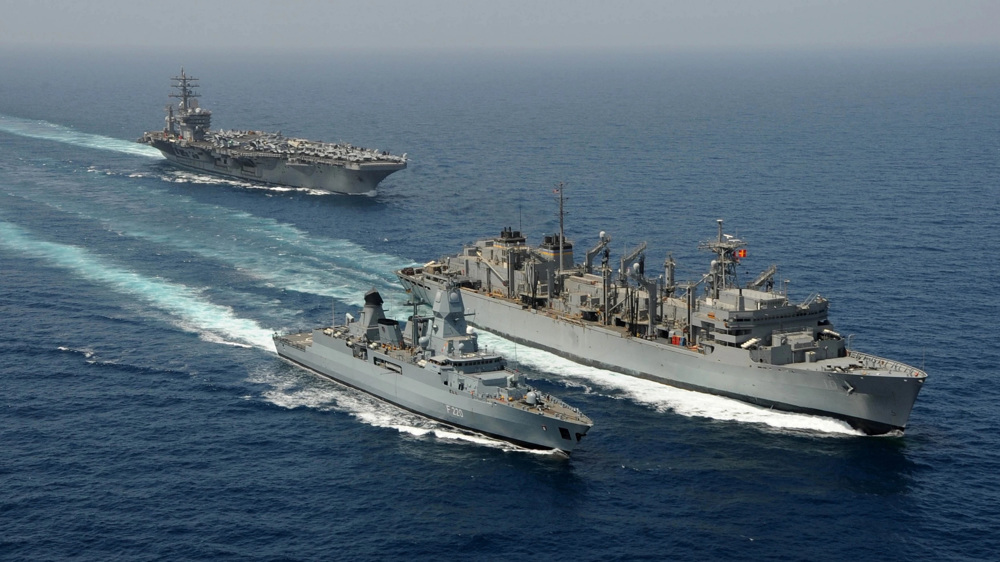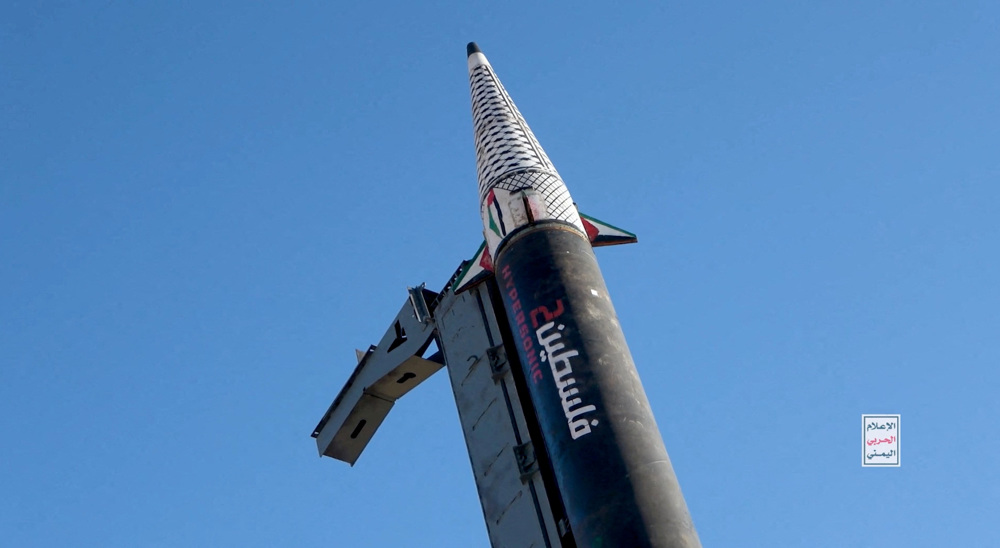'Completely unbelievable': US pilots say 'traumatized' by intensity of Yemen retaliatory operations
US Navy fighter pilots have described as “traumatizing” their encounters with Yemen’s Armed Forces launching daring strikes on Israeli-owned and -bound shipping in the Red Sea in retaliation for the occupying regime’s months-long genocide against Palestinians in the besieged Gaza Strip.
The fighter pilots came home in Virginia on Friday after nine months of maritime clashes with the Yemeni military and their missile and drone strikes, in what CBS News referred to as “the most intense running sea battle the Navy has faced since World War II.”
The USS Dwight D. Eisenhower aircraft carrier strike group, which includes three other warships supported by squadrons of F/A-18 Super Hornets, was tasked with protecting Israeli vessels and US-allied warships in a Red Sea corridor that leads to the Suez Canal and into the Mediterranean.
The carrier strike group left Virginia in mid-October last year but its deployment at the strategic waterway was extended twice following the escalation of Yemen’s pro-Palestine retaliatory attacks.
“Honestly, it was completely unbelievable,” Lt. Cmdr. Charity Somma told CBS News. “I don’t think anybody on board that carrier strike group was expecting that to happen.”
Commander Benjamin Orloff, a Navy pilot, told reporters in Virginia Beach that most of the sailors, including him, were not used to being fired on, given their previous military engagements in recent decades.
“It was incredibly different,” Orloff said. “And I’ll be honest, it was a little traumatizing for the group. It’s something that we don’t think about a lot until you’re presented with it.”
When asked by CBS News if what they faced could be described as the most intense naval combat since Word World War II, Orloff called the description “pretty apt.”
Underlining the severity of the Yemeni military’s confrontation with the US Navy forces, Orloff said, “This was not long-range projection. This was…right in our face.”
The CBS News also cited Caitlyn Jeronimus, whose husband is a Navy lieutenant commander and pilot, as saying that she initially thought it could be a “fun deployment,” and would be relatively easy but Eisenhower’s plans changed due to Yemen’s escalating strikes and “it was stressful.”
According to an AP report quoting American military commanders and experts last month, the US-led campaign to protect Israeli interests in the Red Sea has escalated into the “most intense” running sea battle the Navy has faced since World War II.
The report said the US Navy had been exhausted after confronting non-stop naval operations by Yemen’s Armed Forces, with commanders warning that the situation there is perilously dangerous for them.
Yemenis have declared their open support for Palestine’s struggle against the Israeli occupation since the regime launched a devastating war on Gaza on October 7, 2023, after the territory’s Palestinian resistance movements carried out a surprise retaliatory attack, dubbed Operation Al-Aqsa Storm, against the occupying entity.
Yemeni Armed Forces have said that they will not stop their attacks until Israeli ground and aerial offensives in Gaza, which have killed at least 38,345 people and wounded another 88,295 individuals, come to an end.
The leader of Yemen’s Ansarullah resistance movement, Abdul-Malik al-Houthi, has said that it is “a great honor and blessing to be confronting America directly.”
The attacks have forced some of the world’s biggest shipping and oil companies to suspend transit through one of the world’s most important maritime trade routes.
Tankers are instead adding thousands of miles to international shipping routes by sailing around the continent of Africa rather than going through the Suez Canal.
VIDEO | Thousands evacuated in Ethiopia amid earthquakes, volcanic eruption fears
Revealed: Israeli ministers eye restoration of illegal settlements in Gaza through genocide
How Los Angeles’ pistachio tycoons facilitated and profited from wildfires
Iraqi PM: Iran was in Syria to fight terrorism; presence requested by Damascus
Hamas: Israel's massacre in Jenin camp won’t break resistance
60 bodies recovered from abandoned South African gold mine: Police
Biden administration ‘quietly’ circumnavigating own ban on TikTok: Report
Iran Navy takes delivery of first advanced ‘signals-intelligence’ destroyer











 This makes it easy to access the Press TV website
This makes it easy to access the Press TV website